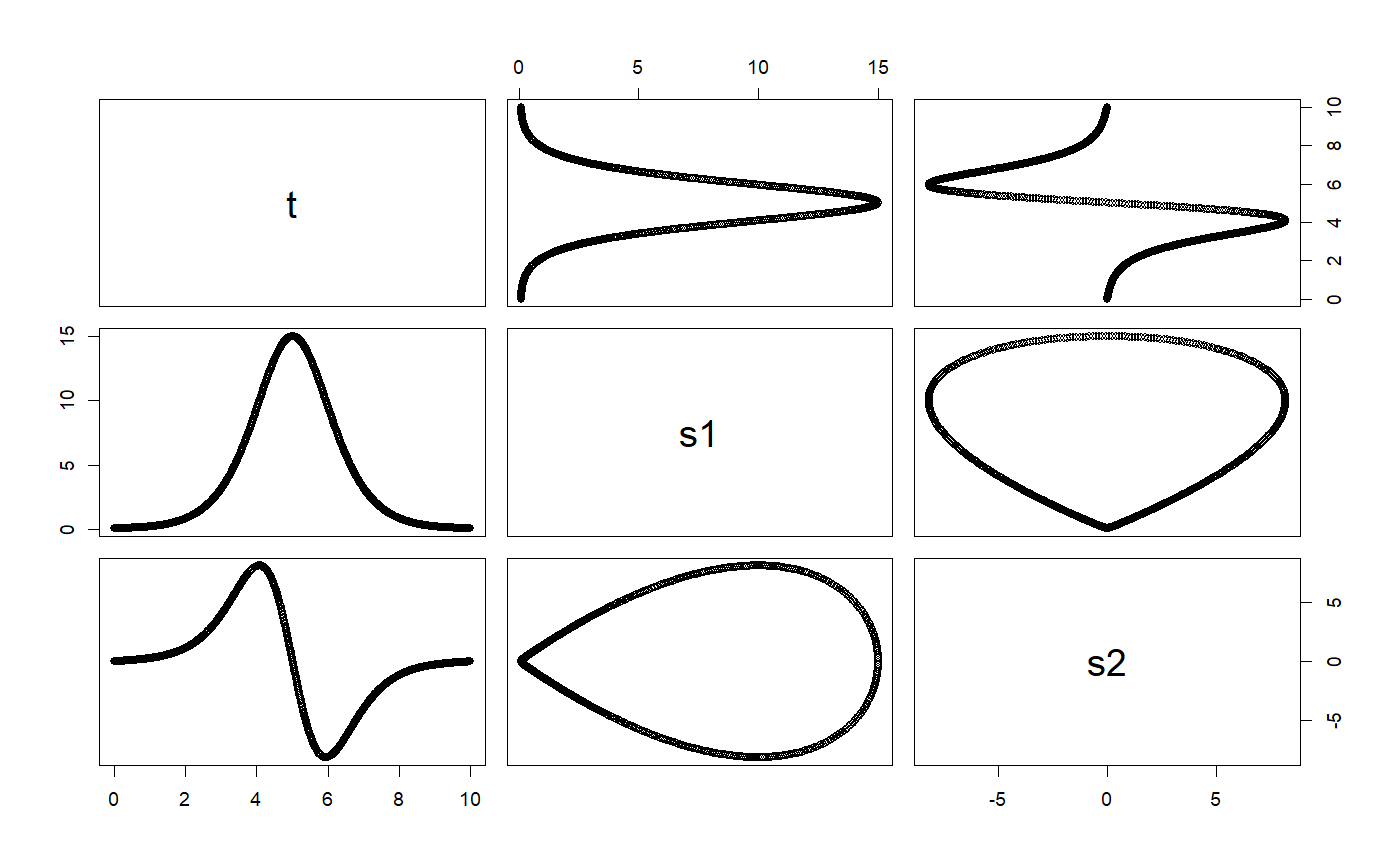getTime
Get the elapsed time
getTime(object, ...)
Arguments
| object | a class object |
|---|---|
| ... | additional parameters |
Examples
# +++++++++++++++++++++++++++++++++++++++++++++++++++ application: Logistic.R # Simulates the logistic equation importFromExamples("Logistic.R") # Run the application LogisticApp <- function(verbose = FALSE) { x <- 0.1 vx <- 0 r <- 2 # Malthusian parameter (rate of maximum population growth) K <- 10.0 # carrying capacity of the environment dt <- 0.01; tol <- 1e-3; tmax <- 10 population <- Logistic() # create a Logistic ODE object # Two ways of initializing the object # population <- init(population, c(x, vx, 0), r, K) init(population) <- list(initState = c(x, vx, 0), r = r, K = K) odeSolver <- Verlet(population) # select the solver # Two ways of initializing the solver # odeSolver <- init(odeSolver, dt) init(odeSolver) <- dt population@odeSolver <- odeSolver # setSolver(population) <- odeSolver rowVector <- vector("list") i <- 1 while (getTime(population) <= tmax) { rowVector[[i]] <- list(t = getTime(population), s1 = getState(population)[1], s2 = getState(population)[2]) population <- doStep(population) i <- i + 1 } DT <- data.table::rbindlist(rowVector) return(DT) } # show solution solution <- LogisticApp()#>#>plot(solution)# KeplerEnergy.R # setClass("KeplerEnergy", slots = c( GM = "numeric", odeSolver = "Verlet", counter = "numeric" ), contains = c("ODE") ) setMethod("initialize", "KeplerEnergy", function(.Object, ...) { .Object@GM <- 4 * pi * pi # gravitation constant times combined mass .Object@state <- vector("numeric", 5) # x, vx, y, vy, t # .Object@odeSolver <- Verlet(ode = .Object) .Object@odeSolver <- Verlet(.Object) .Object@counter <- 0 return(.Object) })#> [1] "initialize"setMethod("doStep", "KeplerEnergy", function(object, ...) { object@odeSolver <- step(object@odeSolver) object@state <- object@odeSolver@ode@state object })#> [1] "doStep"setMethod("getTime", "KeplerEnergy", function(object, ...) { return(object@state[5]) })#> [1] "getTime"setMethod("getEnergy", "KeplerEnergy", function(object, ...) { ke <- 0.5 * (object@state[2] * object@state[2] + object@state[4] * object@state[4]) pe <- -object@GM / sqrt(object@state[1] * object@state[1] + object@state[3] * object@state[3]) return(pe+ke) })#> [1] "getEnergy"setMethod("init", "KeplerEnergy", function(object, initState, ...) { object@state <- initState object@odeSolver <- init(object@odeSolver, getStepSize(object@odeSolver)) object@counter <- 0 object })#> [1] "init"setReplaceMethod("init", "KeplerEnergy", function(object, ..., value) { initState <- value object@state <- initState object@odeSolver <- init(object@odeSolver, getStepSize(object@odeSolver)) object@counter <- 0 object })#> [1] "init<-"setMethod("getRate", "KeplerEnergy", function(object, state, ...) { # Computes the rate using the given state. r2 <- state[1] * state[1] + state[3] * state[3] # distance squared r3 <- r2 * sqrt(r2) # distance cubed object@rate[1] <- state[2] object@rate[2] <- (- object@GM * state[1]) / r3 object@rate[3] <- state[4] object@rate[4] <- (- object@GM * state[3]) / r3 object@rate[5] <- 1 # time derivative object@counter <- object@counter + 1 object@rate })#> [1] "getRate"setMethod("getState", "KeplerEnergy", function(object, ...) { # Gets the state variables. return(object@state) })#> [1] "getState"# constructor KeplerEnergy <- function() { kepler <- new("KeplerEnergy") return(kepler) }
